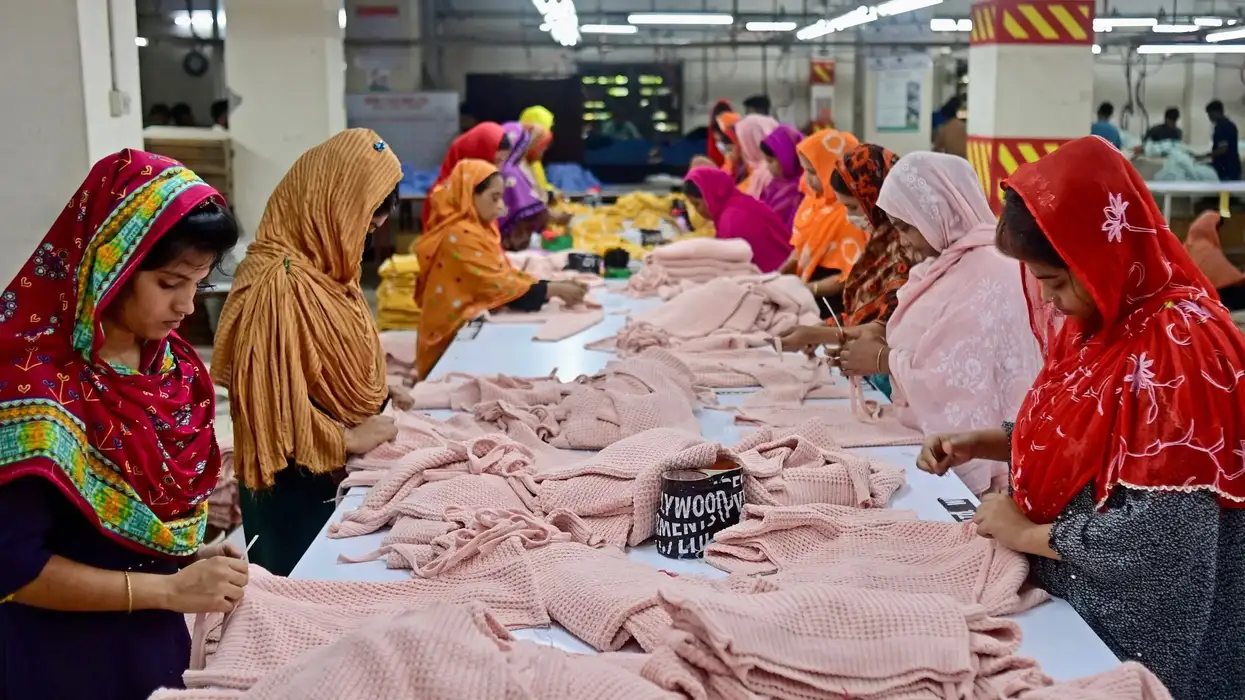The collapse of a clothing factory complex near Bangladesh's capital on April 24, 2013, claimed the lives of at least 1,138 workers and exposed the failure of Western fashion brands to protect labor rights in developing countries.
The tragedy sparked global outrage and forced multinational companies to confront the human toll of their business models and substandard working conditions.
A decade on, fashion firms claim they have made strides in improving worker safety and welfare, but activists are calling for stronger legal measures to hold companies accountable.
The European Union is developing legislation that targets human rights abuses and environmental damage by European companies in their production chains, modelled on a French law introduced in 2017.
While rights groups have filed lawsuits against firms, the results have been mixed, with a recent court decision dismissing a case seeking to halt a controversial TotalEnergies oil project in Uganda and Tanzania.
Following the Rana Plaza disaster in Bangladesh, unions and multinational companies signed an agreement to monitor safety in clothing factories a month later. The agreement now also extends to Pakistan and requires approximately 200 firms, including H&M, Primark, Uniqlo, and Zara, to fund an independent factory inspection system, as per Nayla Ajaltouni of the group Ethics on the Label.
Additionally, according to Ajaltouni, about 1,600 factories in Bangladesh have been renovated since 2014. However, some major companies such as Amazon, Ikea, Levi's, and Walmart have not joined the agreement.
Inditex, the parent company of Zara, employs around 930,000 workers locally, and it claims to have conducted supplier audits before the Rana Plaza disaster. Since then, it has accelerated its evaluation procedures.
Similarly, H&M Group has been disclosing details of its manufacturing factories, mills, and yarn producers on its public supplier list since 2013 to increase transparency within its global supply chain.
Uniqlo, on the other hand, initiated its own investigation into fire and building safety at its manufacturing partners' facilities in Bangladesh with the help of an independent third party following the disaster.
Furthermore, in 2019, Uniqlo launched a training programme with the support of UN Women to empower women in Bangladesh to become leaders in their workplace.
Besides, following the disaster, Irish retailer Primark established a compensation programme for hundreds of workers employed by its suppliers and has continued to provide financial support, with a total of over $14 million to date.
The company also conducted or commissioned 2,400 audits in 2021 to ensure the safety and well-being of workers in its supply chain.
But Laura Bourgeois, who is responsible for litigation and advocacy at the non-governmental organization Sherpa, cautioned that relying solely on social audits has its limitations.
Bourgeois noted the financial relationship between the auditor and the multinational commissioning the audit, as well as the potential for biased interviews with workers and rigged audits in new factories.
She also pointed out that there can be a discrepancy between the audit findings and the actual corrective actions taken.
While Ajaltouni views the rise of ultra-fast fashion and extremely low prices as a testament to the inadequacy of corporate social responsibility.
Shein, a Chinese-founded online retailer now headquartered in Singapore, is often cited as an example of the lack of regulation in the fashion industry.
Despite its very cheap clothing, it competes with fast fashion brands, but is regularly questioned over its manufacturing conditions. However, the company did not respond to AFP's request for comment.
According to Sandra Cossart, Executive Director at Sherpa, some companies appear to be respectful but devote their resources to circumventing legislation.
While they may have become aware that they need to change, it is still premature to say that such firms are more responsible now from a legal perspective, she said.
(With inputs from AFP)













